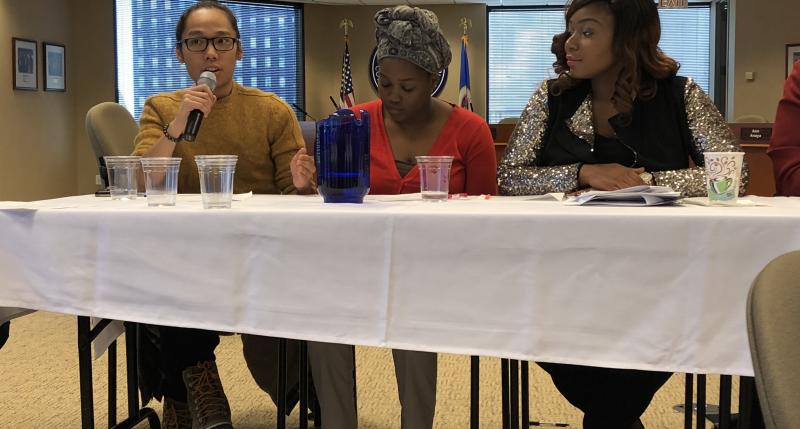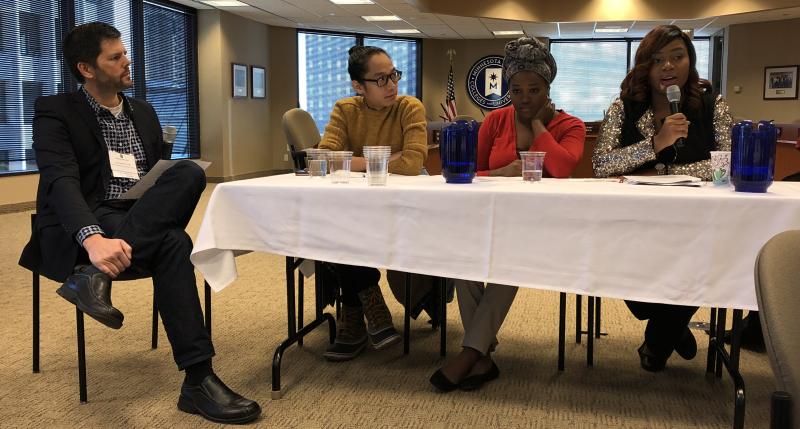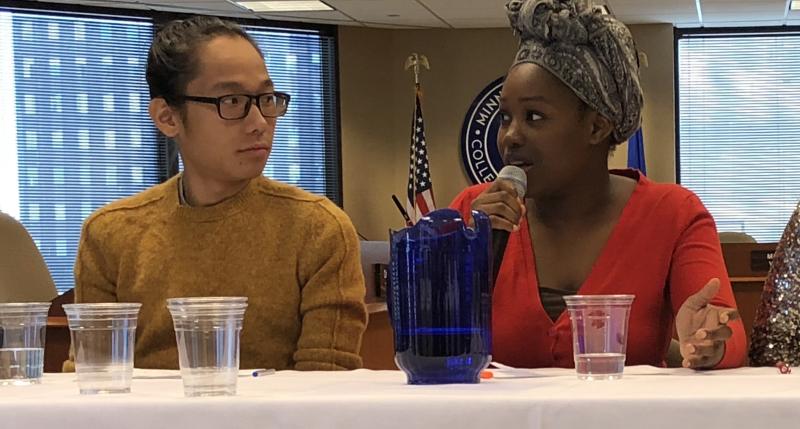On November 10, 2017, LeadMN participated on a student panel for an audience of Minnesota State chief diversity officers. The goal was to give students the space to provide feedback and insight on the topics of equity, inclusion, and diversity in our system. Building relationships between student leaders and campus chief diversity officers was also a focus.
Panelists were asked several questions about campus climate and issues affecting students. Students identified that the lack of representation in faculty, staff, and curriculum is a major concern. Participants described how when they do not see diverse staff or faculty, it makes them feel unsupported and that they have no one they can connect with. Additionally, students wished that the education they receive in their classes incorporated more multicultural perspectives.
Students also shared stories of how they have experienced microaggressions from faculty and staff due to their identity. These microaggressions included faculty making assumptions about a student’s intelligence based on their status, comments on a student’s English proficiency, and the belief that students cannot excel in certain programs due to their race. The panel emphasized that campus staff and faculty should not automatically assume that two-year community and technical college students do not want to pursue four-year degrees or have other goals. Students also urged that the work of diversity must be intersectional in order to meet the needs of every student.
The Achievement Gap was also identified as a top issue that affects students. Students stated that more must be done to ensure that students of color and others from historically underrepresented backgrounds succeed in college. Ideas included dedicated outreach to diverse communities, fostering environments that are welcoming, increased retention strategies, and developmental education reform.
The conversation was not solely focused on identifying challenges in equity work. Students also reflected on the successes they’ve had in equity work as well. Examples included working with their chief diversity officers, collaborating with diversity staff on the creation and review of campus diversity plans, and building relationships between multicultural clubs on campuses. The common theme in these victories was the relationship and support that students received from campus staff. These victories highlighted the importance of chief diversity officers and the need for increased interaction with students.
Overall, it was evident that in order to truly advance equity, inclusion, and diversity work on campuses, it is absolutely critical that students be involved in the process. Opportunities like the student panel are a great way to demonstrate the commitment to student engagement in equity work. LeadMN is grateful to have been engaged and looks forward to future opportunities to collaborate.
In reflecting on their experience participating on the panel, LeadMN Treasurer and Century College student, Tavion Tran said, “It’s time for students to speak up about inequities on campus and it’s time for staff to listen. This is a great opportunity for us to share our values.” Robertta Warnpeh, Anoka Technical College student and Student Diversity Taskforce member, emphasized the need for an intersectional approach to diversity saying “I want others to know that diversity is not only black and white. Diversity is everything that makes us unique as students. Diversity starts with education and a student that is taught properly the first time can lead and change an entire community.”
Special thanks to Tavion Tran, Robertta Warnpeh, and Elizabeth Zalanga (St. Paul College, Student Diversity Taskforce member, LeadMN Diversity Committee member) for their leadership and participation in the panel. We also thank the Minnesota State System Office of Equity and Inclusion for their invitation to participate.


